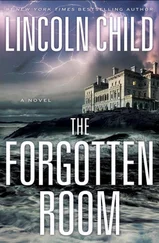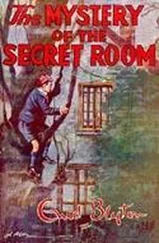Quality Control, she wrote for type of work.
I’m an employee, he’d told them, but seemed unable to specify what kind.
———
Recycler.
Maintenance crew.
Retail.
Wholesale.
Flyer distribution.
Warehouse distribution.
Dollar Store.
Dollar Tree.
Distribution warehouse.
Walmart.
He said he handed out flyers.
He had written recycler.
They both worked with a crew that handed out flyers.
He delivered free newspapers, but not regularly.
He worked at a distribution warehouse.
She wrote quality control.
He said he worked part-time helping a friend who cleaned dollar stores after hours.
Cashier.
Unemployed.
Not currently employed.
QC, which she explained meant quality control.
Truck unloader.
Package handler.
He unpacked crates, he told them, at a distribution warehouse.
When asked what she did for a living, the suspect said she worked.
Recycling, he’d written.
He brought recycling to a redemption center, he explained.
Recycler.
Recycler.
Recycler.
Recycler.
Redemptions, he told them.
Redeemer was what she wrote.
———
The suspect said she had mostly made her living by collecting bottles and cans.
When you google the town of Stanville, faces pop up: mug shots. After the mug shots, an article that cites Stanville as having the highest percentage of minimum-wage workers in the state. Stanville’s water is poisoned. The air there is bad. Most of the old businesses are boarded. There are dollar stores, gas stations that serve as liquor outlets, and coin op laundry. People without cars walk the main boulevard in the hottest part of the day, when it’s 113 degrees outside. They amble along in the gutter of the road, scooting empty shopping carts, piercing the dead zone of late afternoon with the carts’ loose metallic rattle. There are no sidewalks.
Stanville is synonymous with its prison. Like Corcoran is, and Chino, Delano and Chowchilla and Avenal, Susanville and San Quentin, scores of towns that house prisons and share a name, up and down the state.
———
Gordon Hauser found a place to rent sight unseen, a cabin up the mountain from Stanville proper, in the western Sierra foothills. The cabin was one room with a woodstove. It would be his Thoreau year, he wrote to his friend Alex, sending him the realty link.
Your Kaczynski year , Alex wrote back, after looking at the photos of the cabin.
True both lived in one-room huts , Gordon responded. But I don’t see much connection between them .
Reverence of nature, self-reliance. K was even a reader of Walden , Alex wrote . It’s on the list of books from his cabin. Also R.W.B. Lewis, your idol.
Aren’t you kind of oversimplifying?
Yes. But also: both died virgins.
Kaczynski’s not dead, Alex , Gordon wrote back.
You know what I mean.
But Thoreau was worried about trains , Gordon replied . Ted K lived in the time of the atomic bomb. He lived through the technological destruction of the world.
I confess that is of course a significant difference. Can’t remove either from historical context. Plus, Thoreau would have made a deeply inadequate mail bomb. His inflammatory act of resistance was not getting a welcome mat for his place.
For goodbye beers at their bar on Shattuck Avenue, Alex gave Gordon, as a kind of joke, a Ted Kaczynski reader. Gordon had looked at the manifesto. Everyone had. The guy had briefly been a young professor at Berkeley.
They toasted Gordon’s departure. “To my rustication,” Gordon said.
“Isn’t that when they boot you from Oxford?”
“They just send you down to the country for a while.”
———
Gordon left downtown Oakland in the late afternoon, and drove east, and south. Tunneling through the dark and flat expanse of big agriculture along Highway 99, a burnt smell of synthetic fertilizer coming into the air vents, even on recirculate, he began to see an orange glow way off the freeway, a huge nimbus surrounded by darkness. A mysterious light source, as if there were a large factory out in the middle of the night-black fields. It was them, he knew: the women, three thousand of them. Just like at NCWF, it was a place where there could be no night because security was twenty-four hours a day, seven days a week.
He checked in at a Holiday Inn. He would meet the property manager in the morning, get the keys to his new place. He wanted to ask the girl behind the hotel desk if she knew anyone who worked at Stanville Prison. He did not ask. He asked if the tap water in town was okay to drink. “I’m not the type of person who drinks tap water?” the girl said, upward lilting. He asked if she could recommend a place to eat.
“Now, are you a fried shrimp lover?” Apparently that was also a type.
———
Gordon’s mountain place had a poisoned water supply. Not from agriculture. There was naturally occurring uranium, so you had to bring in bottled water. He liked the cabin. It smelled of fresh-planed pine. It was logical in its compactness. Cozy, even. It was up on stilts, on a steep hill with few neighbors, and had an enormous view of the valley.
He was meant to report to his new job in a week. He spent his days unpacking his meager belongings and chopping wood. Went for walks. Nights, he fed logs to his stove and read.
Ted Kaczynski, Gordon learned, ate mostly rabbits. Squirrels, Ted reported, didn’t seem to like bad weather. The Ted diaries were mostly concerned with how he lived and what he saw happening in the wilderness around him, and Gordon could see that comparing him to Thoreau was not as crude as he’d first suspected. But Ted would never write this: Through our own recovered innocence we discern the innocence of our neighbors .
Gordon’s new neighbors were all white, Christian, and conservative. People who tinkered with trucks and dirt bikes and made assumptions of Gordon that he did nothing to dispel, because he knew those assumptions would work in his favor if he needed their help. It snowed up there. Roads closed, cutting off access to supplies. Trees fell and knocked down power lines. In summer and autumn, fires raged through. Gordon did not enjoy the grinding zing of dirt bikes’ two-stroke motors, which echoed down the valley on weekends, but that was the country: not a pure and untrammeled world of native wildlife and songbird calls, but country people, who cleared the trees off their property with chain saws and paved, or laid Astroturf, cleared paths through the woods for motocross courses and snowmobiling. Gordon withheld judgments. These people knew much more than he did about how to live in the mountains. How to survive winter and forest fires and mud flows from spring rains. How to properly stack wood, as Gordon’s neighbor from down the hill had patiently showed him, after his two cords of chunk wood were dumped in the driveway by a guy named Beaver who was missing most of his fingers. Gordon learned to split logs. Part one of his rustication.
The guy down the road who helped Gordon stack his wood had a wife or a girlfriend. Gordon had not met her, but he’d heard the two of them arguing. Voices echoed up the hills.
One night in those early days of his new life in the mountains, Gordon was woken by what he thought was a woman’s scream from out in the deep dark. He fumbled for the lamp. He was sure it was the neighbor’s wife. Their place was down the hill maybe three hundred yards. He heard another scream. A frightened shriek. This time, closer. It sounded like someone in trouble.
Читать дальше








![О Генри - Меблированная комната [The Furnished Room]](/books/415396/o-genri-meblirovannaya-komnata-the-furnished-room-thumb.webp)
![О Генри - Комната на чердаке [The Skylight Room]](/books/415780/o-genri-komnata-na-cherdake-the-skylight-room-thumb.webp)


